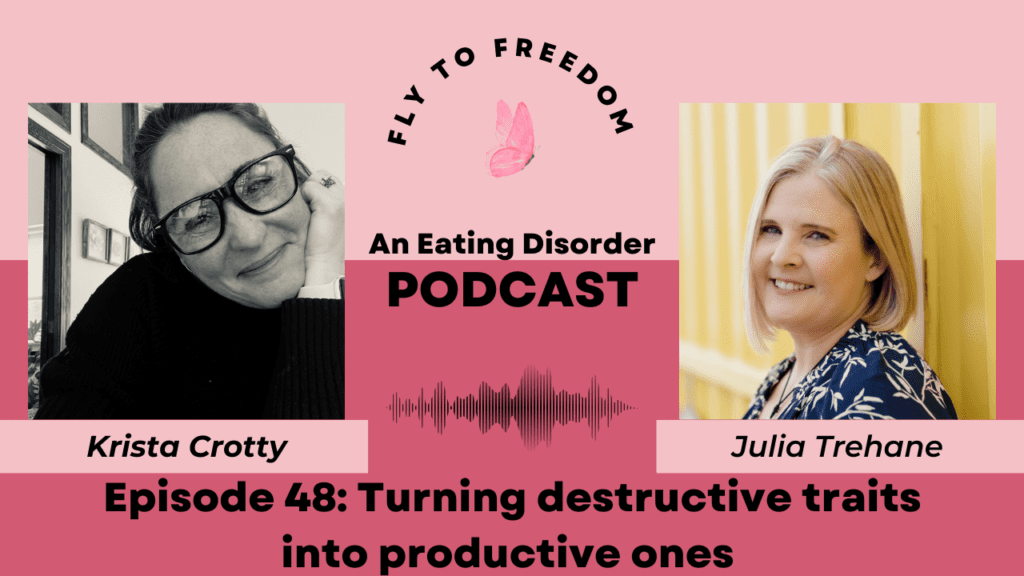In anorexia recovery, understanding the nuanced interplay between our brains and behaviours opens up new pathways for healing. Recently, I had the privilege of chatting about an innovative therapy called Temperament Based Treatment with Supports (TBTS) with Dr. Krista Crotty, a pioneer in the field of eating disorder treatment. This therapy stands out by focusing on the underlying brain biology of eating disorders, which is a game-changer in how we approach recovery.

This episode of Fly to Freedom accompanies this blog post. Click on the image to listen.
The Science Behind TBTS
TBTS is rooted in the latest neuroscience, revealing that certain personality traits, like perfectionism and persistence, are more prevalent in those with eating disorders, particularly anorexia. These aren’t inherently negative traits; in fact, they can be powerful assets when channeled productively. However, without the right support, they can drive the destructive behaviours associated with anorexia.
What makes TBTS revolutionary is its approach to transforming these traits from harmful to helpful, leveraging them in the recovery process. This method not only fosters a deeper understanding of one’s behaviours but also eradicates the guilt and blame often associated with having an eating disorder. By recognising that these behaviours are not choices but responses influenced by our brain’s wiring, individuals can approach their recovery journey with compassion and understanding.
The Role of Supports in TBTS
A cornerstone of TBTS is the inclusion of supports—friends, family, and caregivers—in the treatment process. This collaborative approach ensures that the recovery plan is not only personalised but also embedded in a nurturing environment. Dr. Crotty emphasises the importance of psychoeducation, experiential learning, and skills practice during an intensive five-day program. This immersive experience equips both individuals and their supports with the tools needed for a successful recovery journey.
Empowerment Through Control and Responsibility
One of the most empowering aspects of TBTS, as highlighted by Dr. Crotty, is the emphasis on giving individuals control over their recovery. This empowerment is crucial for building resilience and self-efficacy. Practical solutions, like setting alarms to remember to eat, underscore the importance of integrating manageable, everyday strategies into one’s recovery plan. It’s about making recovery achievable, one step at a time.
The Global Impact of TBTS
The potential of TBTS to transform lives is immense. As we learn more about the brain-based traits that contribute to eating disorders, treatments like TBTS offer hope and a path forward for those struggling worldwide. For anyone looking to understand more about this therapy, resources like Dr. Crotty’s website and the book “Temperament Based Therapy with Supports” are invaluable.
This article aims to shed light on the promising approach of TBTS in anorexia recovery, highlighting the importance of understanding the brain’s role in eating disorders.
By embracing our innate traits and leaning on our support networks, recovery is not just a possibility; it’s within reach.
Remember, the path to recovery is a journey of self-discovery, empowerment, and, most importantly, hope.
If this article resonated with you, be sure to listen to the podcast
If you’d like me to help you through your recovery, with proper, effective, science backed techniques and everything you need to create a better life, free from your eating disorder, reach out to me and take that 1st step. Oh, and this part is free of charge by the way!
Click here
